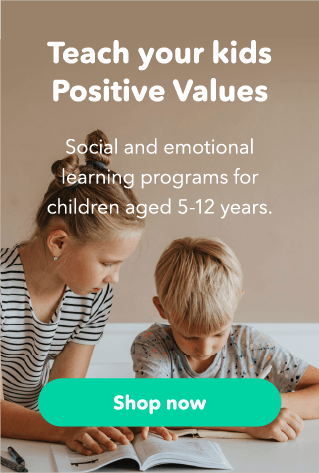
It seems like it should be easy, but sometimes it’s not. What makes friendship so complicated? Why is it that sometimes we’re great friends with someone, and then suddenly something changes and we don’t speak to them anymore? In this blog post, we’ll explore some of the reasons why friendship can be complicated, and offer some advice on how to navigate friendship conflicts.
Why friendship conflicts happen?
Most children, especially girls, believe in the idea of having a BFF (Best Friend Forever). In this idealistic world, she would meet this perfect friend that shares the same interests as her, never disagree, never fight, always spend time together and always be happy.
But this idea of finding a best friend and keeping her forever is more of a myth than a reality for most children. Consequently, children often find themselves falling into the trap of trying to please everyone in order to be liked.
Friends, just like everyone else, make mistakes, change interests, meet other friends and get busy with their own individual pursuits. Yet, for many children (girls in particular), when their social life goes awry, they interpret it as a catastrophe instead of part of life. They blame themselves and often suffer in silence.
Don’t internalise the problem
This week my son was playing a catching game with my husband after dinner. My daughter wanted to play traffic (a game she made up with my son). Usually, my son would love to play traffic with her, but at that particular time, he was having too much fun playing catch with dad and didn’t want to stop. When my daughter invited my son to play, he replied, “I don’t want to play traffic.” She came to me crying and said, “Tommy doesn’t want to play with ME.” She had immediately internalised what he said and made it a personal issue.
The truth was that he wanted to continue playing the catching game, and she was more than welcome to join if she wanted. Once I explained to her that SHE wasn’t the problem, the game choice was the problem she could externalise and regulate herself.
In this case, I was present at the time and had control of the situation. I saw where the issue come from and was able to intervene and help my daughter self-regulate. But how can we help with friendship conflicts that are out of our control?
8 ways to help your child navigate friendship issues
Support and listen to your child
As a parent, it can be hard to hear your child describe how they are hurt or upset about things, such as friendships, that you have no control over. Remember, though, that it is far better for your child to be talking to you about her feelings than keeping her emotions bottled up. The fact that she is talking to you means you can assist.
While it might be tempting to try to jump in and solve her problems, at 9 years of age, it is more important to be there as a good listener, and to support her in thinking through and solving these challenges for herself. The goal is to be a patient listener and travel the emotional journey with your daughter as she experiences the ups and downs of making, losing and keeping friends.
Create an open communication family environment
Ensuring that she has enjoyable family experiences and plenty of quality one-to-one time with you as her parents will provide her with a secure base in the home to help her deal with any challenges outside. If things are tough in school for a period, knowing that she can come home and be listened to will be a great resource.
Encourage problem-solving
It is important to encourage her to solve the friendship problems she is dealing with. Help her think of ways to deal with the feelings she is experiencing. Asking her gentle questions can be an excellent way to approach this. For example, you could ask her what she thinks a good friend should be? What different idea of friendship does this girl have? What would help her feel a bit better about what is happening? Would it be better to develop a few friendships in the class rather than depending on one? Who else in the class could she be friends with?
It can be helpful to get her to describe the specifics of a situation in detail (what the friend said and how she responded, and so on) and to coach her in good strategies and communication. It also may be helpful to speak to the teacher, who may be able to give some insight into what is happening between the children to make sure it is not a case of bullying.
Offer some new ways of thinking
Once you have listened to her, it can be helpful to offer her new ways to think about friendships and what is going on for her, such as “it is very normal to feel hurt sometimes in friendships . . . but you can get through it”. “Sometimes, you can learn a lot from these experiences . . . even though it can feel hard” or “sometimes it is best to have a few good friends so you can depend on different people” or “different friends give us different things”, and so on.
Help her understand how real-life friendships look like
The idea of having a BFF is more often than not an unrealistic expectation. We all have friendship stories. Some are happy, some are inspiring, and some are a learning opportunity. Tell your child about your friendship tales.
Build resilience
There are different ways in which children learn to be resilient when dealing with social situations. Help them create many sources of self-esteem and good social relationships. Encouraging your child to concentrate on friendships with other people in the class, or on hobbies and interests that she enjoys and put her in different social groups can allow her to feel supported while she works things out in school. Resilience helps your child get through challenges and learn from them.
Build a healthy self-identity
While friends and social connections are very important, it’s also important that your child develop a healthy sense of self. If your child believes they need to supplicate to others in order to develop friendship, this may result in a loss of self. All healthy friendships need to firstly be grounded in your child’s right to be themselves, and to freely express themselves.
Friendships are worth the effort
Your child’s friends will make mistakes. No one is perfect. But a good friendship is worth the effort she puts in. It will require an investment of her time and energy, and it might get a little messy along the way. But if she works through conflicts, she might find that she can build something meaningful along the way.
You can use the Superpower Kids My Good Friends printable to help your child focus on what is important in a good friendship.
Related Articles
AMA: School Camp Anxiety: 10 Strategies for a Stress Free Camp




